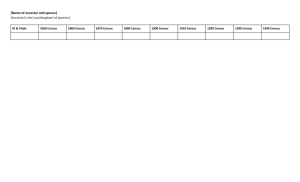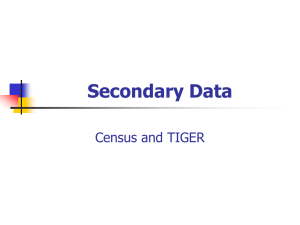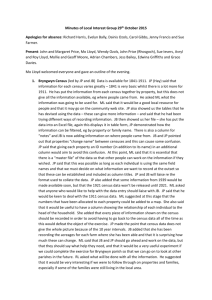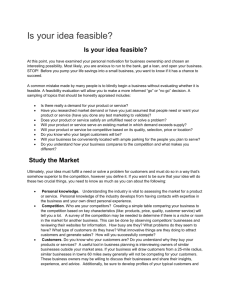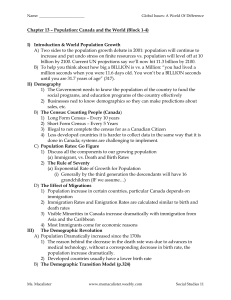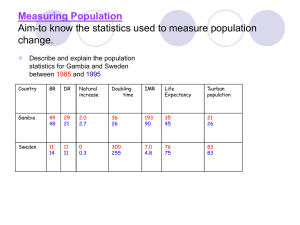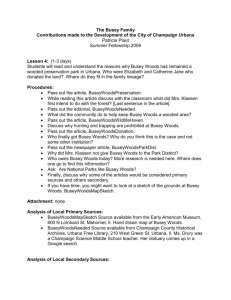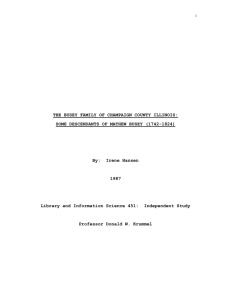WardFel08lesson2
advertisement
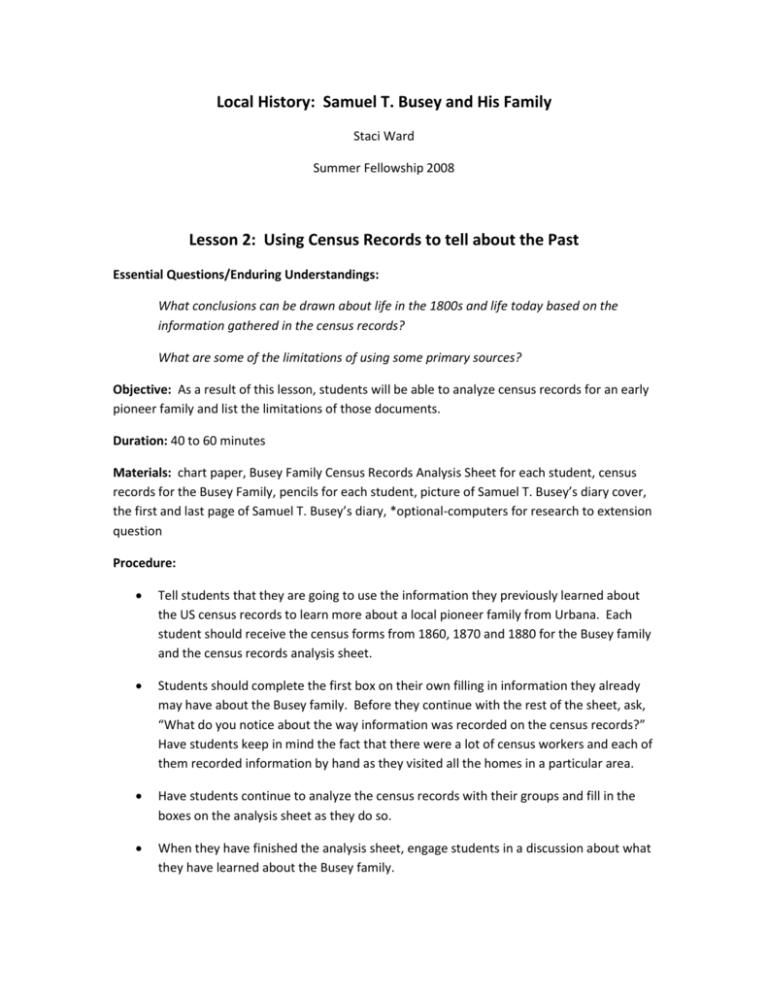
Local History: Samuel T. Busey and His Family Staci Ward Summer Fellowship 2008 Lesson 2: Using Census Records to tell about the Past Essential Questions/Enduring Understandings: What conclusions can be drawn about life in the 1800s and life today based on the information gathered in the census records? What are some of the limitations of using some primary sources? Objective: As a result of this lesson, students will be able to analyze census records for an early pioneer family and list the limitations of those documents. Duration: 40 to 60 minutes Materials: chart paper, Busey Family Census Records Analysis Sheet for each student, census records for the Busey Family, pencils for each student, picture of Samuel T. Busey’s diary cover, the first and last page of Samuel T. Busey’s diary, *optional-computers for research to extension question Procedure: Tell students that they are going to use the information they previously learned about the US census records to learn more about a local pioneer family from Urbana. Each student should receive the census forms from 1860, 1870 and 1880 for the Busey family and the census records analysis sheet. Students should complete the first box on their own filling in information they already may have about the Busey family. Before they continue with the rest of the sheet, ask, “What do you notice about the way information was recorded on the census records?” Have students keep in mind the fact that there were a lot of census workers and each of them recorded information by hand as they visited all the homes in a particular area. Have students continue to analyze the census records with their groups and fill in the boxes on the analysis sheet as they do so. When they have finished the analysis sheet, engage students in a discussion about what they have learned about the Busey family. Point out that Census records were available for the year 1900, but Samuel T. Busey’s family was not listed in the records. Ask students why this would be. Lead students in a discussion about other primary sources that may be evidence of the existence of individuals at particular times. If not mentioned, give students an example of how a diary can be used to do this very thing by using a page from Samuel T. Busey’s diary. Show the picture of Busey’s travel diary, and the first and last pages of the diary. (This diary may help point out that the Busey family may not have been included in the US census for that year because they were Europe for an extended period of time. This is helpful to point out some limitations of primary sources such as the census that students will be asked to discuss later in the lesson.) On chart paper, record responses to the following question: What are some of the challenges that one has to consider when analyzing primary source records such as these? (If students do not mention it, lead up to the idea that there were such difficulties as recording information for people who may not have had families and/or homes, information written by had by different people so info may have been hard to read or the recorder may have made mistakes, etc.). Assessment: Students should be observed for active participation in discussion as well as their responses on the census records analysis sheet. *Optional Extension: Have students research the answer to the following question: There are few, if any federal census records available for families and individuals from 1890 but the census was taken in that year and continued every ten years after that. Why do you think this would be? Do some research on the internet to find out the answer, you can start at the National Archives and Records Administration website and the US Census Bureau website. (There was a big fire in 1921 in Washington D.C. and many records were destroyed.) Primary Sources Used: Census records from Samuel T. Busey’s family 1860-1880, Samuel T. Busey’s diary in 1900 Link to Local History: Census records for a prominent pioneer family from early Champaign County and the city of Urbana.
